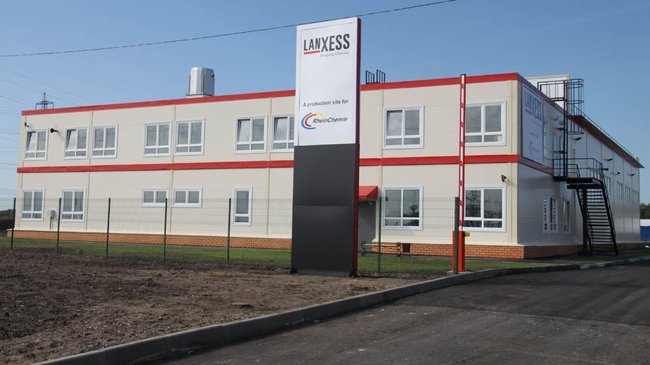Lanxess claims “record time” certification for Lipetsk Rhein Chemie site
 Now ISO certified – Rhein Chemie’s Lipetsk facility
Now ISO certified – Rhein Chemie’s Lipetsk facility
In mid-2013, Lanxess’ Rhein Chemie Additives business unit opened a new facility in the Lipetsk Industrial Park, around 300 miles southeast of Moscow. Although the plant has produced polymer-bound rubber additives for almost two years now, Lanxess states “it was clear” that “lasting commercial success” with tyre and rubber industry customers in Russia wouldn’t be feasible unless the facility achieved the appropriate ISO certification, and therefore it set about obtaining this at the start of last year.
The speciality chemicals firm reports that its Rhein Chemie Additives business unit commenced a support programme in early 2014 to ensure the Lipetsk site, the first Lanxess production facility in Russia, could obtain ISO 9001 quality management and ISO 14001 environmental management certification as rapidly as possible and be incorporated into the Lanxess group master certificate. After a kick-off event in January 2014, two HSEQ workshops were held in April and June 2014 with the aim of expanding the existing OOO LANXESS management system in Moscow to the Lipetsk production site. A commercial workshop in October 2014 and an HSE workshop in March 2015 rounded out the support programme and enabled the onsite team to build and integrate the systems and processes to group level. Lanxess reports impressive audit results: External auditor DQS passed the facility with no deviations and only a few recommendations.
“The construction and control of the processes in the triangle between Moscow, Lipetsk and BU Central in Germany were a special challenge. The existing management system at OOO Lanxess cooperated with us excellently. Many thanks to all involved,” said Karl-Heinz Müller, production manager of the Rhein Chemie Additives business unit’s rubber business line.
Following the plant’s official opening on 4 July 2013, Lanxess reported its capacity for predispersed, polymer-bound Rhenogran rubber additives to be 1,500 tonnes per annum. The substance is used to facilitate the faster processing of rubber compounds and is said to increase the quality, durability and long-term functionality of rubber components. In addition to its application in tyre manufacture, Rhenogran is utilised for the production of technical elastomer products such as profiles, hoses and seals.
The Lipetsk Rhenogran plant will be joined next year by a second facility on the same site. This will produce bladders for use in tyre production and will have a capacity of 80,000 Rhenoshape bladders a year.



Comments